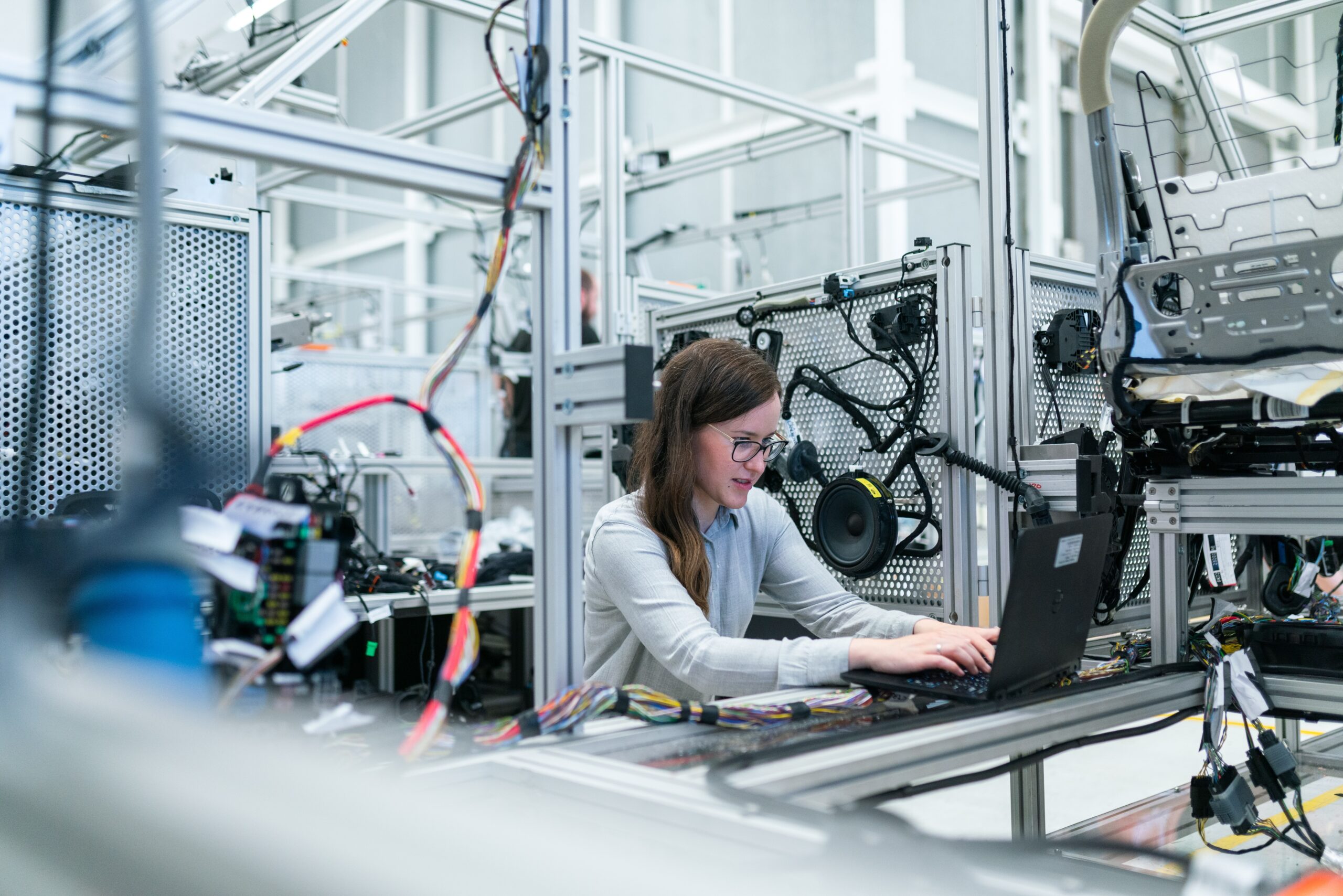Why Startups Should Pay Close Attention to the Manufacturing Vertical
Perspectives
Vab Goel + Fay Hazaveh CostaAugust 20, 2022
Where there is challenge and massive change, there lies opportunity for entrepreneurs.

Let’s face it: the manufacturing industry has had a tough few years. Across the wide spectrum of consumer goods and semiconductors to packaged foods and industrials, the words “supply chain impacts” have never been uttered as much in the US vernacular. The spotlight has been brightly shone on the consequences of over-consolidation and risks of too much offshoring. Further, the intense combination of COVID, the war in Ukraine, tension in Taiwan and China leading to the CHIPS act, and general geopolitical and financial instability have accelerated the need for every manufacturer to undergo immense transformation and embrace an Industry 4.0 strategy. And where there is challenge and massive change, there lies opportunity for entrepreneurs.
Despite many headwinds, manufacturing is on the cusp of an unprecedented wave of innovation. The industry truly has no choice; this wave has been barreling its way to the shore as all baby boomers will be of retirement age by 2030, and the talent pipeline for a younger generation is shrinking. The Smart Manufacturing market alone is projected to surpass $650B in 2029.
In a recent roundtable with our partners at NTT DATA – Prasoon Saxena, President of Manufacturing and Eric Clark, Chief Digital & Strategy Officer – and a dozen manufacturing Chief Digital Officers and CIOs, it became abundantly clear that now is the time for startups to pay close attention to the needs of this specific vertical.
1. Manufacturers are global enterprises, too.
Digital Transformation in the manufacturing industry isn’t just about making a warehouse or production floor more efficient. These companies also have large populations of “carpeted” office employees – a creative term used by peers at the Roundtable to refer to the broader office-based employees and operations. Just like other enterprises, manufacturers have been undergoing broad digital transformation, adopting cloud and SaaS technologies and creating a very large market opportunity for companies targeting enterprises. The challenges that manufacturers face with IT, business processes, and security are not that materially different from other types of enterprise customers.
2. IT organizations in manufacturing can be more agile and less constrained than other verticals.
Compared to other highly regulated industries like healthcare and financial services, many manufacturing companies have fewer constraints and can be much nimbler in their operations. Running on leaner margins, manufacturers also tend to have fewer layers of IT administration and approval. For these reasons, IT and business leaders in the manufacturing vertical are more open to embracing new technology, can make decisions more quickly, and are willing to move fast on proofs of concept and implementations. Based on our experience with NTT’s global ecosystem of 100k+ enterprise customers, manufacturing has been one of the leading verticals in adopting new technologies over the past few years.
3. Your technology could offer compelling solutions to the manufacturing labor shortage.
You don’t need to be building robots, cobots, or AR/VR technology to be a game-changing partner to manufacturing customers. The executives at our roundtable agreed that the lack of young, qualified individuals entering the manufacturing workforce is the biggest threat to their future success. In their quest to attract this younger generation of employees, manufacturers want to appeal to prospective candidates by investing in technology solutions that improve the overall employee experience. Rather than the cliché of robots replacing human jobs, this kind of digital transformation allows team members to level-up into more challenging areas that contribute to their career advancement and development. Further, better technology can also contribute to societal and environmental impact that deeply motivates Millennial and Gen Z talent.

Our NTTVC portfolio companies are taking full advantage of the innovation opportunities in manufacturing. Celona is enabling manufacturers with large, distributed campuses to combine Private 5G, edge computing, and AI to offer broader, more reliable network coverage. Kibsi’s low-code platform for developing, deploying, and managing vision-enabled solutions at scale offers an intelligence layer for existing visual data that creates contextual understanding of what is happening within a video, and uses AI/ML to help solve problems that are identified. While both companies offer compelling solutions to many verticals, they are seeing particular success and traction within manufacturing.
The Manufacturing industry is ripe for disruption and significant ROI through technology. Though some may think manufacturers are archaic and slow, they in fact have a strong appetite for new technology adoption, can make quick decisions with fewer layers of approval, and are willing to “fail faster” than many other verticals. Now is the time for startups to study up on the challenges of this industry and include it as a key vertical in their 2023 plans.